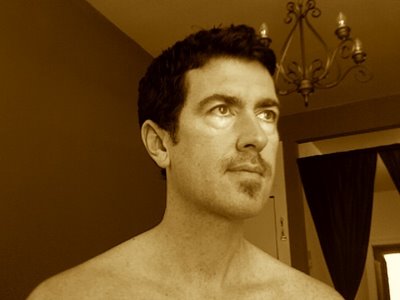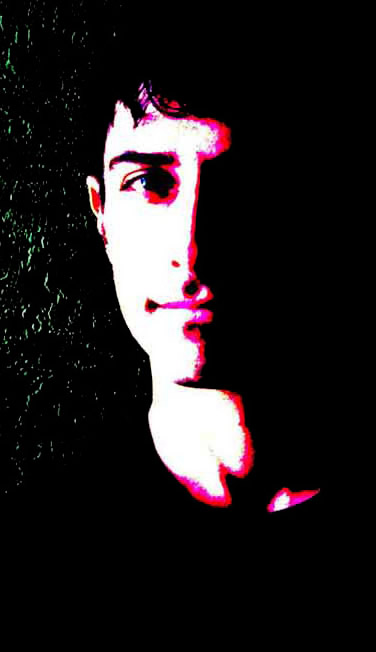
Two friends from out of town invited me to the world premiere performances at the San Francisco Opera of
Appomattox, the Philip Glass and Christopher Hampton work about Lee's surrender in the Civil War. I took the first opportunity, with my friend Myrlin from Short Mountain, Tennessee, thinking I would also go with Juliette, from Albion Ridge, tonight, if I liked it. Suddenly I find myself without Thursday evening plans.
Two caveats: One is that I cannot responsibly review the opera because I only got through the first half. I wrestled with my decision to desert at the intermission, weighing factors like my credibility as a critic, the $30 I'd paid Myrlin for his second senior rush ticket, and the possibility the opera would redeem itself in the second act. I finally decided that any work that had proceeded for its entire first half without a single interesting idea emanating from the stage or the orchestra pit was probably better left for dead on the battlefield.
The second caveat is that when I was a violin student Philip Glass was extremely generous to me. For my third-year recital at Juilliard, I put on "An Evening of American Music" and closed the first half with the Knee Play 4, an interlude from his first opera
Einstein on the Beach in which Einstein plays violin to the accompaniment of a four-part male choir. As rehearsals started with the singers, I opened the Manhattan phone book, found the composer's number, called him up and told him what I was doing. He invited me and my singers down to his house in the East Village and we ran through the number for him. He not only gave us a coaching, but on the spot he composed for us a concluding passage that would make the interlude work as a concert piece. Later that week he sat for a telephone interview, which I printed in my program notes and which, if I can find the file, I'll post to my Web site one of these days.
I endured a fair amount of jeering snobbery from Juilliard faculty and classmates for programming Glass--one of my collaborators on the program made a point of leaving the theater before Knee Play 4 began. But I loved
Einstein on the Beach. I'd discovered the music when I was twelve years old and it had an absolutely druggy impact on my imagination. At twelve, I couldn't have put words to the experience, but I was hearing something genuinely revolutionary (whether Glass touched off the revolution or just popularized it), something revolutionarily clean, vital, downtown, Eastern, technological (despite relying almost entirely on the human voice and traditional acoustic instruments), neon and new.
Einstein's hallmark was the radical transparency of its harmonic language after seventy years of musical drip-painting, clarity that put into high relief not only the strangeness of the libretto and the vividness of Robert Wilson's stagecraft but the newness and singularity of Glass's instrumentation and timbre. After all the Juilliard jeering I was afraid my love affair with
Einstein couldn't survive whatever sophistication I'd acquired since the age of twelve, but I went to the BAM revival in the early 90s and loved every minute of it. I stand by
Einstein, I respect Glass, and I hurl mean thoughts at all the snobs I went to school with.
That's part of what made
Appommatox such a dismal experience, feeling in my own response to it the dismissal and derision with which my friends left the recital hall before Knee Play 4. The first act of this new opera was stupefying. How else can we receive a ten-minute scene in which the women sing "war is sorrowful" over and over again over utterly unilluminating harmonic noodling in the orchestra? It's either sublime simplicity or numbing insipidity, and judging from the response of the audience in the dress circle, most people got numb.
Einstein too was built on repetition, but with the newness of the way Glass wrote for the voice and the freshness of the ideas he and Wilson manifested, the results were always intriguing if not downright beautiful. In
Appomattox, scene after scene unfolded according to a formula of idea-free reiteration.
"It's pretty glum," said Myrlin at halftime. "But it's war, and war is glum."
OK, I'll swallow the glum pill. But at least give me some hope it will be good for me! It's 1865, the women are all dressed for a Victorian funeral, the set with its blood-red moat looks like it was borrowed from a modern-dress production of
Turandot, the libretto reads like the remix of a History Channel transcript, and the accent coach and the production's grim determination to be historically accurate have Mrs. Lee belting out lines like "Husband, it is not RAAAAAAAAGHT for you to do so!"
What I missed in the second half: Lee and Grant negotiate a surrender (negotiations!). Interruptions in which racial injustice from the near and distant future is portrayed (education!). A looting scene, and then a reprise: women lament the tragedy of war, the orchestra noodles.
My recommendation: take the money you would have put toward a ticket and get the original recording of
Einstein, with the surpassingly pure and luminous soprano Iris Hiskey.
Labels: art, Juilliard, music, opera, Philip Glass, recommendation, review




